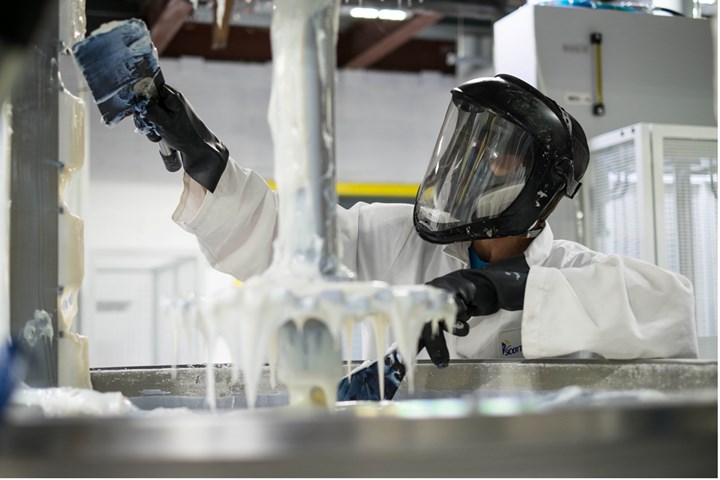Scott Bader ATC begins Crestabond MMA structural adhesive production
Scott Bader’s Drummondville, Canada, facility has begun manufacturing and supplying composites-applicable adhesives to its North American customers.
After months of installation and testing, the first batch of Scott Bader ATC’s (Drummondville, Canada) Crestabond M1 structural adhesive has been successfully produced and delivered to customers. The announcement marks the first production of its Crestabond structural adhesives in North America.
The expansion of Crestabond production to Scott Bader ATC, a £2.2 million ($3.3 million CAD) investment, will enable Scott Bader to meet the growing demand for its high-quality MMA primerless structural adhesives within the North American market. It will also significantly reduce transport emissions and delivery times, helping Scott Bader to deliver a faster, more efficient service for its customers with less environmental impact.
The initial production at Scott Bader ATC will focus on the Crestabond M1 series of 10:1 structural adhesives, suitable for bonding a range of substrates including composites, thermoplastics and metals. The range benefits from varying working times to suit a host of applications in multiple industries including marine, automotive, wind energy and construction.
The expansion of Crestabond production to Scott Bader ATC follows its $16 million investment in a new production site in Mocksville, N.C., U.S. In keeping with Scott Bader’s 2036 vision to steer towards sustainable growth, while increasing its global footprint, environmental impact has been a key consideration throughout the North Carolina development and will remain central to the investments in its new site.
Related Content
-
Scott Bader, Oxeco partner for high-performance bonding solution
Joint technology breaks barriers to bonding lightweight flexible solar panels to roofing structures made from aluminum, coated steel and composites.
-
Syensqo introduces AeroPaste 1003 aerospace adhesive
Two-part room-temperature paste increases high-rate assembly and joining efficiencies when bonding metallic and composite parts.
-
BiDebA project supports bio-based adhesives development for composites
Five European project partners are to engineer novel bio-based adhesives, derived from renewable resources, to facilitate composites debonding, circularity in transportation markets.













